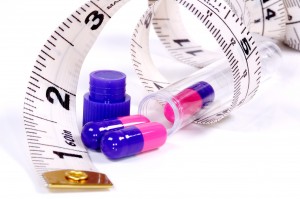Losing weight from the inside with hormonal balance

A very common hormonal imbalance is cortisol. Stress is a major contributor to elevated cortisol levels.
by Dr. Paul Stallone —
When the pounds start to show and our waistbands get a little tight is when most of us start to consider losing a few extra pounds. This time of year is notorious for weight-loss programs. Now that the holidays are over and summer is in sight, people start focusing on cleaning up their eating habits. Some will begin a quick-fix diet, while others will make minor changes. Some will succeed; some will not. But some will not even try, as they have experienced nothing but failure in the past.
The reason this group of people will struggle to balance their weight is because one or more of the many hormones present in their bodies are imbalanced. Hormones control virtually every function within the body, especially when it comes to weight. We all have hormones that control our appetite, cravings, metabolism and the placement of fat.
The area of the body where excess fat is most often stored is the abdomen. This accumulation can be useful and provide information about what could potentially be going on within the body, although nothing replaces diagnostic testing. Excessive insulin, cortisol and estrogen levels, along with suppressed levels of testosterone and DHEA, can all lead to extra belly fat, but each requires a different treatment plan in order to shed the extra weight.
A very common hormonal imbalance is cortisol. Stress is a major contributor to elevated cortisol levels. In addition to increasing belly fat, when this hormone is elevated, mood disorders like depression and anxiety can be experienced. Chronic fatigue is almost always a symptom when cortisol levels are not balanced. This hormone can increase cravings and appetite, and lower libido, muscle mass and bone density. It is no wonder people gain weight when they have no energy and have insatiable cravings.
High levels of estrogen can create a vicious cycle. In men, a surplus of belly fat increases the conversion of testosterone into estrogen. However, excessive estrogen produces more belly fat, and the more belly fat, the more conversion of the above hormones.
In men, this can lead to serious complications. Low testosterone can cause a host of symptoms, many of which can be devastating to a man’s self-worth. Women, either pre- or postmenopausal, will experience their own symptoms like weight gain on hips and belly, difficulty losing weight, depression, fatigue, loss of muscle mass and low libido. Excessive estrogen makes it easy to gain the weight, but extremely hard to lose it.
DHEA and growth hormone (GH) are often thought of as anti-aging hormones. When these hormones are functioning properly, the ability to lose fat and increase muscle mass is much more achievable. However, when these hormones drop, either from age or other reasons, the ability to repair tissue and build muscle decreases considerably. DHEA and GH also affect mood. They help us feel positive about ourselves and provide an optimistic outlook on life, critical for successful weight loss.
Losing a few pounds for the average person should be relatively easy, but those who struggle to lose weight or gain weight, even with diligence, should consider checking their hormone levels. The right physician may not even need a full workup, but just enough to confirm any suspicions.
A tailored hormone replacement program by itself could be enough for some patients to balance their weight. Others will notice that their efforts with proper food choices and exercise produce excellent results.
Paul Stallone, N.M.D., founded the Arizona Integrative Medical Center, located in Scottsdale, Ariz. He combines natural, alternative and conventional treatments to best fit each patient’s needs. drstallone.com or 480-214-3922.
Reprinted from AzNetNews, Volume 35, Number 1, February/March 2016.





February 10, 2016
Featured, February/March 2016 issue, Weight issues